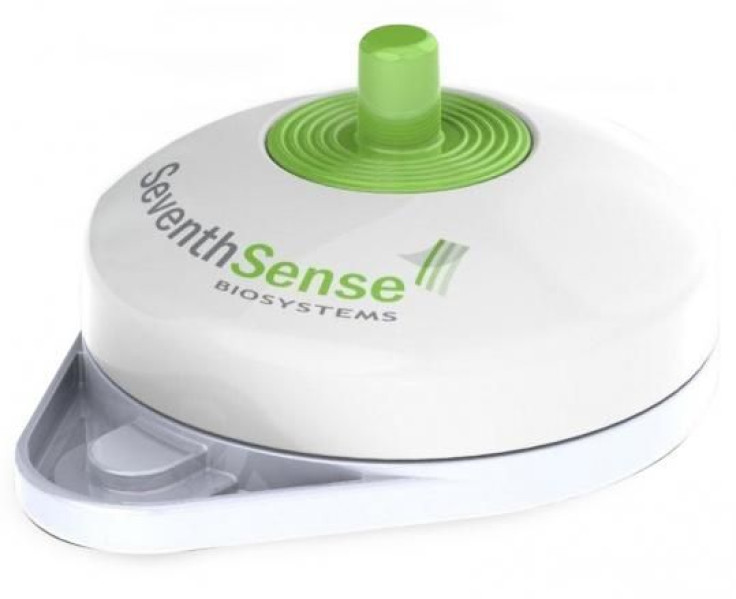Pain-Free Blood Collection One Step Closer With Capillary-Piercing Micro-Needles

DNA tests can be performed with a simple swab of the tongue, deep tissue exams can be performed via X-ray to test for cancer, yet the only way to draw blood is to poke a needle through the skin. Behind prostate exams, the relative crudeness of blood collection certainly lags compared to other technological advances. But with the introduction of their pain-free method, a company called Seventh Sense Biosystems now hopes to change that.
The method, called Touch Activated Phlebotomy (TAP), relies on dozens of tiny micro-needles, which draw blood from the capillaries much closer to the surface of the skin rather than piercing one vein directly. What’s more, the extracted blood gets housed inside the device itself, not some snaking tube that ends at a vial. Manufacturers argue this tag team approach ultimately has the power to replace traditional blood collection as the preferred method, given its reduced invasiveness and increased patient approval.
"This first regulatory approval is a significant milestone in our goal of expanding the reach of blood-based point-of-care diagnostics to a majority of patients, regardless of geography or setting," Howard Weisman, CEO and president of Seventh Sense, said in a news release of the method’s recent CE Mark approval.
With the approval, the company can now move forward with its microfluidic technology in future clinical trials. Unlike traditional testing, microfluidics relies on small sample volumes — in this case, less than 20 micro liters of whole blood. This amount is sufficient for many routine tests, despite larger quantities being needed for specialty disease tests, such as hepatitis and human immunodeficiency virus (HIV).
More important, Weisman notes, is the overall patient experience. Prior research has confirmed that patients who have a positive experience are more likely to comply with their prescribed treatment when it comes to blood sampling. Painful blood tests dissuade people from scheduling future appointments and performing self-tests, as the reminder of yet another needle getting jabbed in their arm is far more visceral than the side-effects of the ailment they are trying to prevent. Weisman argues his company’s product fills that need, especially since the device is opaque, concealing the blood itself once it’s drawn.
"We've surveyed patients and their physicians around the world and found a significant need for near painless, simple-to-use, and reliable blood collection and diagnostic devices that has so far been unmet," he said.
If Seventh Sense Biosystems can receive FDA approval in the early months of 2014, Weisman says the technology could scale up manufacturing and include extended features, past the lone act of blood collection. "When fully commercialized,” he explained, “the TAP platform will incorporate additional capabilities for sample separation as well as dried blood spot and on-board diagnostic capabilities."
According to Seventh Sense, the TAP system can also stabilize the blood with an anticoagulant, if necessary, and has an indicator to alert the clinician when enough blood has been drawn.



























